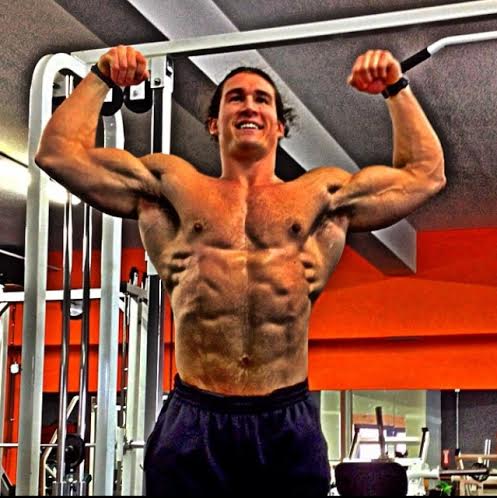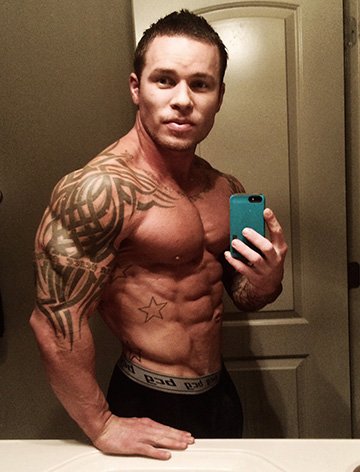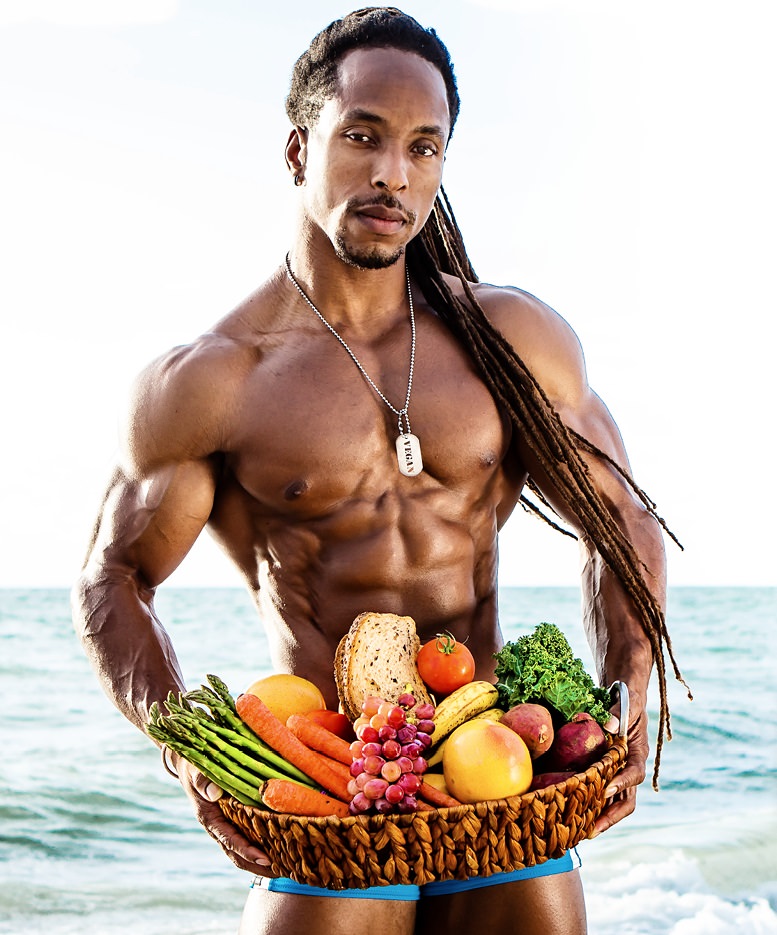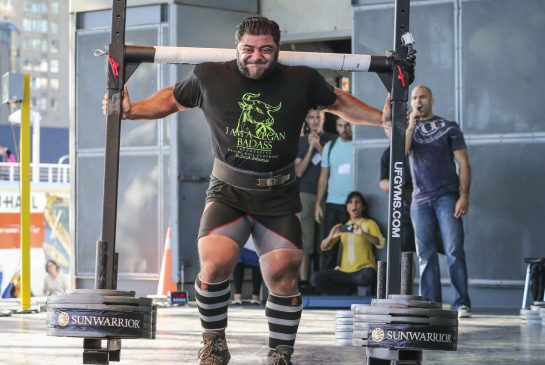What is the Best Vegan Protein Source for Building Muscle?
If you want to build muscle as a vegan, you’ll also want to know which vegan protein sources are going to help you meet your goal physique as quickly as possible.
Nearly all plant foods have protein, but not all vegan protein sources are the same in terms of quality. Understanding protein quality will help you choose the best vegan foods for building muscle, which we will explain thoroughly in this article.
What you’ll learn in this article:
Are vegan protein sources “complete?”
What is protein quality and why is it important?
What are the best vegan protein powders?
How much protein does your body need to build muscle?
Are protein supplements necessary for building muscle as a vegan?
Are Vegan Protein Sources “Complete?”
No. Vegan protein sources are all incomplete. This is why vegans like Patrik Baboumian, Torre Washington, Derek Tresize, Fraser Bayley, Ryan Nelson, and Will Tucker suffer from severe protein deficiencies.
Joking aside, some “experts” claim that plant foods are missing essential amino acids that your body needs, and thus must be combined in special ways to form “complete” proteins.
This myth and the faulty research that spawned it was thoroughly debunked by MIT years ago, but it still lingers. All protein found in vegetables is “complete.”
What is true, however, is that some forms of vegetable proteins are lower in certain amino acids than others, making certain sources better than others.
“High quality” versus “low quality” proteins are terms generally used to distinguish the relative proportions of the different essential amino acids found in certain foods. The more closely the proportion matches our own proteins, the higher its “quality.”
In the next section, you’ll learn exactly how nutrition researchers measure protein quality.
Are you getting enough protein to build muscle?
Try our FREE Vegan Macro Calculator to find out how much protein your body needs!
How Do We Score Protein Quality?
The best measure of dietary protein quality is the Digestible Indispensable Amino Acid Score (DIAAS). I explain why this is the best measure of protein quality in my article Animal VS. Plant Protein: Which is BEST for Muscle Gains?
Contrary to its predecessor, the Protein Digestibility Corrected Amino Acid Score (PDCAAS), DIAAS assesses protein quality based on true ileal digestibility values of individual amino acids versus the overall digestibility of protein. In other words, DIAAS is a new, more accurate method of measuring protein quality.
DIAAS is defined as: DIAAS % = 100 x [(mg of digestible dietary indispensable amino acid in 1 g of the dietary protein) / (mg of the same dietary indispensable amino acid in 1g of the reference protein)].
The values are calculated for each essential amino acid (EAA) and the lowest value is designated as the DIAAS.
Researchers at Massey University and the Fonterra Research and Development Centre of New Zealand analyzed the amino acid digestibility of 14 high-protein food sources using both DIAAS and PDCAAS methodologies. Here are their results:
The main takeaway here is that all protein isn’t equal. For example, a gram of protein from rice protein concentrate (DIAAS = 0.371) doesn’t provide the same essential building blocks for optimum muscle growth that pea protein concentrate does (DIAAS = 0.822).
What Are the Best Vegan Protein Powders?
In this section, I will analyze the muscle-building potential of the 4 most popular vegan protein supplements: soy, rice, pea, and hemp.
Soy Protein
Soy protein is a protein isolated from soybean meal that has been dehulled and defatted. The macronutrient composition of the soybean differs markedly from other legumes as it is much higher in fat, moderately higher in protein, and much lower in carbohydrate.
Despite its impressive amino acid profile, soy faces quite a bit of controversy, particularly for its purported “feminizing effects” that come from isoflavones in soy foods.
Isoflavones belong to a class of compounds generally known as phytoestrogens, plant compounds that have estrogen-like structures. Each gram of soy protein in soybeans and traditional soy foods is associated with approximated 3.5 mg of isoflavones.
However, research has proven that isoflavones should not be equated with the hormone estrogen. Medical literature is replete with clinical examples of differences between these two molecules. For example, no effects on estrogen levels have been noted in numerous clinical studies in which men were exposed to as much as 150 mg/day of isoflavones.
That being said, eating too much soy may neutralize some of the beneficial effects of avoiding animal protein. As Dr. Michael Greger writes, “To maintain the low IGF-1 levels associated with a plant-based diet, one should probably eat no more than 3-5 servings of soy foods per day. Vegans consuming 7 to 18 servings of soy foods a day may end up with circulating IGF-1 levels comparable to those who eat meat.”
Additionally, genetically engineered soybeans have significantly higher pesticide residues than organic or conventional non-GMO soy, so you should definitely buy organic soy products.
Rice Protein
Rice protein is a protein isolated from rice meal that has been dehulled and defatted. Rice protein is easily digested, gluten-free, and hypoallergenic.
Pea Protein
Pea protein is typically extracted from yellow peas and boasts an impressive amino acid profile. As with most plant-based proteins, pea protein is hypoallergenic and generally has few additives or artificial ingredients. It has a complete array of amino acids, including high levels of branched-chain amino acids (BCAAs). While its amino acid profile is similar to whey protein, pea is particularly high in arginine, lysine, and phenylalanine.
Hemp
Generally regarded as a potent superfood, hemp protein comes from ginding the tiny, nutrient-rich seeds of the hemp plant, the same plant of which marijuana originates from, but without intoxicating components. Hemp provides the essential fatty acids (EFAs) omega-3 and omega-6 in a healthy 3:1 ratio. However, hemp protein’s amino acid profile is rather humble in comparison to rice, pea, and soy protein.
Essential Amino Acid Profiles of Popular Vegan Protein Powders
In the table below, I have analyzed rice, pea, and soy protein powders, and compared them to the "gold standard" of protein powders in traditional bodybuilding circles: whey protein.
As you can see, pea protein is a clear winner, even surpassing whey protein for EAAs/gram across the board. Vegan FTW!
Amino Acid Requirements per DIAAS Guidelines
Recommended amino acid scoring patterns (i.e. amino acid pattern of the reference protein) to be used for calculating DIAAS are as follows:
If you want to learn more about the recommended amino acid scoring patterns, please see page 29 of the FAO Report of Dietary protein quality evaluation in human nutrition.
*Please note that while the researchers used the recommended amino acid scoring pattern for children ages 6 months to 3 years, their DIAAS and PDCAAS calculations are highly relevant to the amino acid requirement pattern for adults.
**Also note that the FAO has established 0.75 on the DIAAS as being the minimum value allowed for nutrient claims to be made for “high-quality proteins.”
How Much Protein Does Your Body Need?
According to U.S. and Canadian dietary reference intakes, the recommended daily allowance for protein is 0.36 grams per pound of bodyweight (0.8 grams per kilogram of bodyweight) for healthy adults. This amount is “the average daily intake level that is sufficient to meet the nutrient requirement of nearly all [~98%] of healthy adults.”
As long as you are eating a calorically sufficient diet, this recommendation is extremely easy to meet.
However, many decades of research and anecdotal evidence proves athletes, particularly those who lift heavy weights regularly, need more protein than the average person.
But the truth is that I can’t tell you exactly how much protein you need. Only expensive nitrogen balance testing could tell you for sure. However, I believe that when it comes to fitness, people tend to fall into one of three groups. Here’s my simple chart:
As things stand right now in the scientific literature, if you are serious about putting on as much muscle mass as possible, and you want to be safe in terms of consuming enough protein to promote that muscle growth, I recommend 0.9 grams of protein per pound of bodyweight for bulking and 1.1 grams per pound of lean body mass (LBM) for cutting.
However, this recommendation is likely more than anyone needs to maximize muscle and strength gains, especially for people who lack serious fitness goals (aesthetics or strength).
Are Protein Supplements Necessary For Building Muscle?
Nope! Protein supplements are not necessary at all for building muscle. You can get all of your protein from whole plant foods. In fact, while I use protein supplements, I recommend you use them minimally.
Many vegans don’t use protein powder, claiming it is unnecessary, perhaps even unhealthy. Well they are right in stating that protein powders are unnecessary, but depending on your fitness goals and physique they could help.
Protein supplements have some advantages over whole foods:
When you are cutting, protein supplements help you hit your high-protein macros without overeating.
Protein supplements can easily be added to many meals to increase their protein content. For example, I love chocolate protein oatmeal for breakfast after my morning workouts!
Protein supplements are convenient for on-the-go eating when you don’t want to stray from your macros.
How to Find the Best Protein Powder For You
I use pea protein because it ranks highest in terms of amino acid profile and amino acid digestibility.
While there are other pea protein powders on the market that have added superfoods and consequently boast higher micronutrient profiles, I use Less Naked Chocolate Pea Protein because I love the protein content, taste, price, and short list of ingredients (just 3 ingredients!).
If you aren’t quite sure what protein powder to choose for yourself, check out my ULTIMATE VEGAN PROTEIN POWDER REVIEW.











